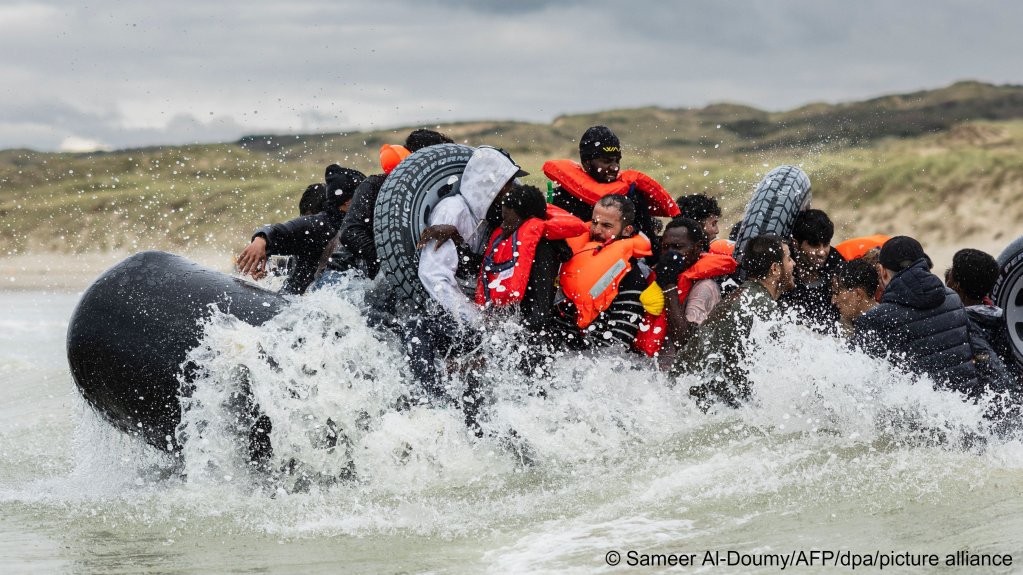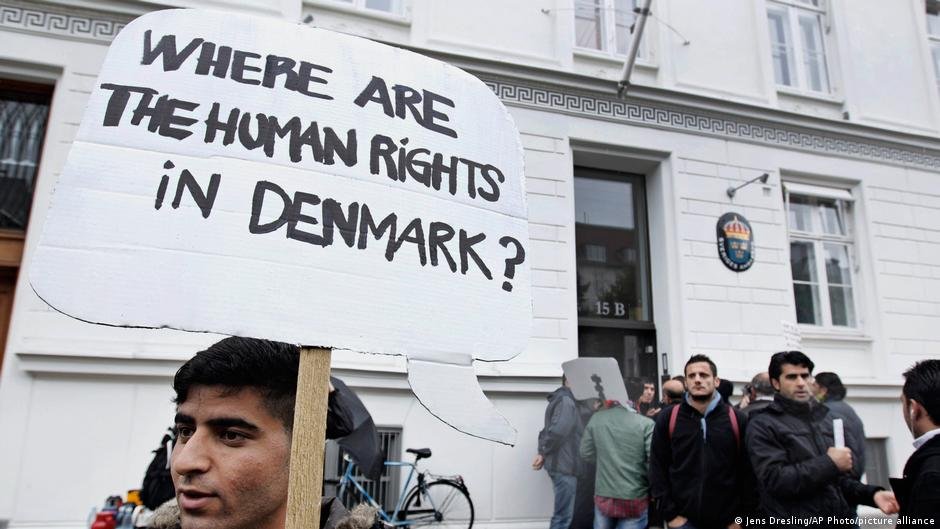A sweeping trend across Europe is the tightening of immigration policies. Meanwhile, a survey revealed that three in four EU citizens believed their country should help those seeking protection. The continent is deeply divided on migration.
A sweeping trend across Europe is the tightening of immigration policies, affecting border control, migration management, asylum procedures and family reunification.
InfoMigrants lists some of the recent changes in various European countries.
Regularization of migration status
Several countries have revoked the possibility for people with an irregular migration status for reasons that include being undocumented or having entered on a tourist visa to obtain work or residence authorization.
- Greece: Irregular migrants no longer allowed to apply for residency even after seven years in the country
- Portugal: Rolled back a 2018 rule that had allowed people who had entered on a tourist visa to apply for residency after one year of work and social security contributions.
Read AlsoEurope's patchwork of rights: Study finds wide disparities in protections for irregular migrants
Family reunification
Some EU countries have suspended the family reunification visa route or have made it harder to qualify for.
- France: Increased legal residence requirement from 12 months to 18 months before filing for family reunification. An additional requirement is proof of a level of French necessary to "communicate at a basic level".
- Austria: Suspension of family reunification applications for six months because of overburdened public services
- Germany: Suspension of family reunification for two years for migrants who are on subsidiary protection, the title given to those who do not have refugee status and do not face the risk of political persecution if they return to their countries of origin.
Read AlsoGermany approves suspension of family reunification, Syrians to be most affected
Deportation, suspending asylum claims
- Greece: approved the temporary suspension of asylum applications from people from North Africa, following a dramatic increase in irregular arrivals on the island of Crete.
- Austria: deported a Syrian national back to Syria, becoming the first EU country to do so since the fall of President Bashar al-Assad.
- Germany: announced plans to deport people back to Syria, following Austria's lead
Border control
- France and the UK: policies to curb the daily arrival of small boats crossing the English Channel from France to the United Kingdom include a "one in, one out" migrant return agreement, where the United Kingdom will return to France those who cross the Channel by boat in exchange for receiving asylum seekers from France on its territory.

- Poland: reintroduced border controls with Germany and Lithuania. In addition, fortified their 186-kilometer metal fence and a 24-hour military presence to prevent migrants from entering via Belarus, mainly migrants from the Middle East
- Finland: Implemented and extended the Border Security Act until December 31, 2026, which allows for the immediate return of asylum seekers crossing its eastern border with Russia.
Read AlsoFleeing, injured, and forgotten in Poland's border forest
Drastic measures
Some countries have turned to other countries for their immigration policy, including plans to outsource asylum processes to non-EU countries.
Italy opened two migrant processing centers in Albania to detain people who are not eligible for asylum until their expulsion.

Denmark was a pioneer in proposing drastic solutions, such as concentrating undocumented migrants on an island or creating deportation centers for asylum seekers in countries like Rwanda. These proposals were ultimately rejected, but parliament did introduce the so-called "Ghetto Law," which allows authorities to intervene and forcibly remove foreigners from neighborhoods if the ratio of non-Western foreigners in those areas exceeds 30 percent.
Read AlsoDenmark: Unprecedented measures to signal to migrants they are not welcome
Public sentiment and social unrest
The unrest around immigration policy also reflects broader social trends of racial tension propelled by the rise of far-right groups and amplified disinformation tactics.
This week, several people were hurt in a series of anti-migrant riots in the town of Torre Pacheco in south-east Spain.

In the United Kingdom, nationwide riots broke out last year after widespread disinformation about a knife attack in Southport left three school girls dead.
More recently, in Northern Ireland, hundreds of people reported to be masked and hooded were involved in a tirade of smashing, burning homes they believed were owned by foreign nationals.
This week, British Future and the Belong Network in the UK released research that a year after the Southfork riots, there remained a likely risk of unrest being reignited unless urgent action was taken to address issues of polarisation and division.

Underlying this social tension are the results from the same survey that showed that about 31 percent of the people interviewed said that they rarely or never had opportunities to meet people from different backgrounds. Lack of money to go to places to meet other people was one reason cited behind the lack of socialization.
The political division is mirrored in public opinion polls about migration.
A majority of EU citizens continue to support a unified approach to migration, according to the findings of a 2024 European Parliament opinion poll.
Highlights of the report find that:
- 67% of EU citizens favor a common European migration policy, with strong backing in Spain, the Netherlands and Luxembourg
- 75% of Europeans support reinforcing the EU’s external borders with more border and coast guards
However, the same survey revealed a broad humanitarian sentiment. Three in four citizens believed their country should help refugees, and 56 percent agreed that immigrants contribute positively to their society.
